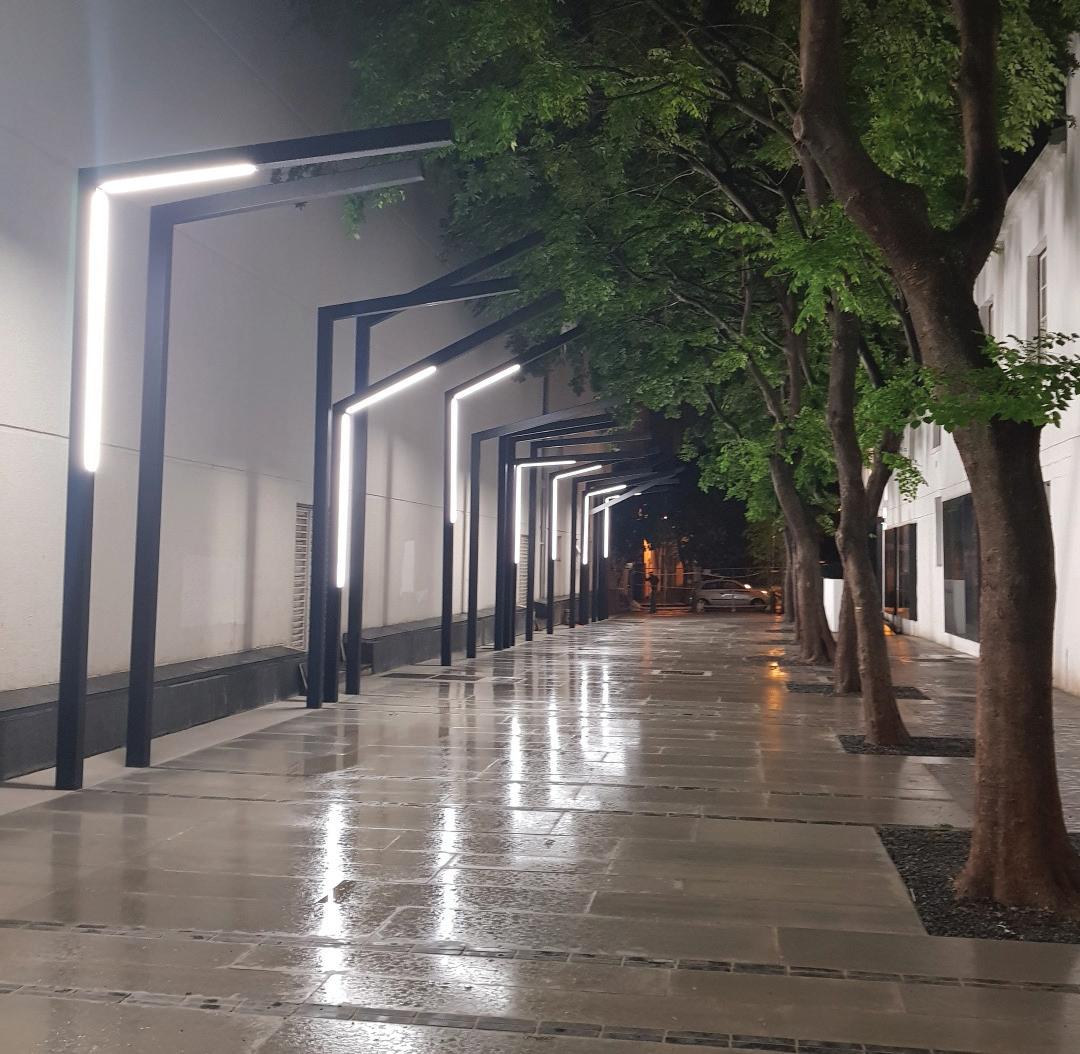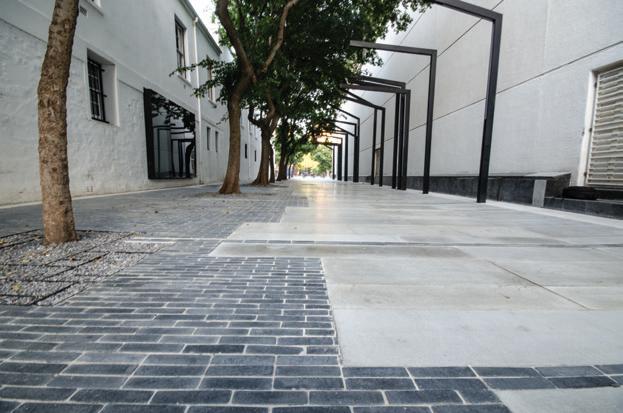
2 minute read
CUSTOM-MADE PAVERS REVITALISE PEDESTRIAN WALKWAY IN CAPE TOWN
(Right): Electric lamps mounted in some of the semi-arched steel frames light up the refurbished section of Longmarket St at night.
(Below): Red Granary Cobbles and an artistic steel framework combine well at the made-over courtyard of the Old Granary.
A section of Longmarket St, one of the oldest thoroughfares in Cape Town’s CBD, has been transformed from a commonplace walkway into an eyecatching urban space. The revamped section covers an area of 630m² and is situated between Harrington and Buitenkant Sts, adjacent to the historic and recently refurbished Old Granary building and a mere stone’s throw from one of the city’s major tourist attractions, the Castle of Good Hope.
The new layout, which involved the use of wet-cast concrete pavers and the installation of an artistic semiarched steel framework for lighting the thoroughfare, was designed by Gapp Architects. The paving is comprised of 215mm x 50mm cobble-styled blocks (Granary Cobbles) and large flagstone pavers, both custom-made by CMA member, Wellington-based SmartStone. The project highlights Longmarket St’s symbolic significance. It is the only street that runs the full width of the City Bowl from Bo-Kaap to District Six and it parades some of Cape Town’s oldest buildings. Its importance as a thoroughfare looks set to intensify as people move back to District Six, resulting in the need for a strong link with the CBD.
Challenging surrounds Gapp Architects says the upgrade presented several design challenges.

T hese included the narr owness o f Longmarket St, a blank façade on one side with no natural spill-out onto the street, a low wall with spikes and limited lighting at night.
“On the plus side, the area had an avenue of well-established trees and was part of an emerging neighbourhood,” says Gapp. “Our design objective was to convert the street into an interpretation of an urban garden using existing props such as the tr ees, together with elements such as cobbled pavers and the semi-arched steel framework that we’d used in the Old Granary courtyard refurbishment project two years before. “We used Granary Cobbles (in red) in the refurbishment of the Old Granary courtyard project and it was from that installation that the name ‘Granary Cobbles’ was coined by SmartStone. We used them in charcoal for the Longmarket St project, where they were of fset by large flagstone pavers. These were produced in numerous sizes to roughly the same 4,3:1 ratio which was used for the cobbles. This made them easily interchangeable during the laying process.

(Above): The revamped Longmarket St showing the Granary Cobbles combined with large flagstone pavers, both made by SmartStone in Wellington.
Paving stones “The largest flagstones measure 2 100 x 600mm and the smallest 850 x 300mm. The intention was for similar-style paving to be used all the way up Longmarket St,” says Gapp.
The paving was laid by Mark Darius Civils and the semi-arched steel framework was installed by 53 Power Projects. The flagstones were reinforced with Y10 rebar, which means they can handle vehicular, as well as pedestrian traffic, should the need arise. And although the design brief called for a strength rating of 25Mpa, SmartStone decided not to deviate from its standard 40Mpa.










